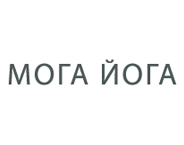|
The Bulgarian national wedding is one of the most symbolic and traditional celebrations and the different customs show the centuries of history and the specific Bulgarian lifestyle and culture.
The matchmaking is very important in the wedding. Matchmakers go from the house of the groom to the house of the bride-to-be late at night. The late hour of those visits is connected to what Bulgarians consider formality - the house of the lady should keep its good name even if the answer of the lass is negative. The matchmaker shows what his intentions are by closing the door with his back turned to it, and then he sits next to the fireplace and starts poking the ashes. Usually the parents do not agree on marriage from the first visit of the matchmaker that's why they should come at least twice. As soon as they reach an agreement they start treating themselves. This treat is called "tavern" and is considered as a confirmation of the agreement. The young couple receives blessings and good wishes for a long and happy marriage. Another important thing is the wedding ring that bride-to-be gets during the matchmaking.
The wedding continues with a number of traditions in the lad's or the lass' home. In the lass' home the preparation of the wedding breads starts. The wedding breads are not only made for the purpose of feeding the guests but also as symbolic images which have magical effect on the future of the couple. They put one of the lad's rings and one of the lass' bracelets in the flour. The parents of the girl who prepares the bread should be alive. The wedding breads have a lot of beautiful images in relief. They are called "the best man's bread", or "the bride's bread", or "wedding bread", or "dove's bread" because of the images of birds on it made by dough.
The wedding banner is made either in the bride's or in the groom's home or in both of them at the same time because the two homes are getting united by this marriage. The banner is white or red or both with a flower, a golden apple on top and a bunch of basil bound together by a red thread. People believe that those objects are magical powers that they give health and well-being and protect from magic. The handle of the banner should be cut off with one strike only so that there is only one marriage for those people. In some regions the bride decorates a small wedding tree which she gives to the best man receiving a bribe in return.
An important part of the wedding is the combing of the bride's hair which symbolizes her becoming a married woman. This ritual comes from the ancient Slavs and the hair that freely goes down the shoulders represents freedom. The Slav girls wore their hair down and did not cover it with anything and after the wedding they braided their hair which meant that they are no longer girls but women. The process of undoing the braids, washing the hair and braiding it again takes place at the day before the wedding and that is the last night of the girl in her father's home. The replacement of the woman's kind of braiding with the girl's one is closely connected to the sexual act in the groom's house. That's why during the combing the atmosphere in the girl's house is gloomy. Her friends try to persuade her not to give up her maidenhood.
The ritual that corresponds to the girl's combing in the groom's house is the shaving. It is done before he goes to take the bride from her house. This is a big celebration symbolizing the end of his celibacy. During the shaving a cloth is held under his chin so that all the hair goes in it and gets protected from spells. After this ritual they all go to take the bride. The yard door or the door of the house of the bride is always closed when the groom comes to take her. To be let in he has to fight with the bride's brother or to solve some difficult tasks and sometimes even give some money.
In the groom's house the mother-in-law welcomes the bride with bread, butter, honey and salt. She is considered the new woman in the house that is going to take care of the household. The bride has to put a tree in the fireplace to become part of the new home. In the morning the bride goes outside under a fertile tree and takes the cloth away from her head and puts it on the tree. On the first day of her marriage she starts doing the house work and in this way becomes a part of the new family life.
After all the wedding ceremonies are finished the young people are officially considered a married couple that starts its own life.
Special Thanks to Bulgarian Traditions
|












